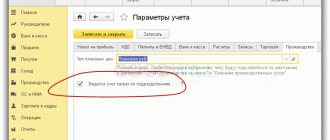Every person officially working in a company signs an employment contract with the employer. Based on this document, different types of disciplinary sanctions can be applied to an employee in the presence of various violations, for which the main provisions of the Labor Code are taken into account. They are represented by certain measures of punishment, and if a sufficient number of violations are recorded on the part of an employee of an enterprise, this may become the basis for his official and compulsory dismissal.
What is a disciplinary offense?
If any disciplinary offense is detected on the part of an employee, then various penalties are applied to him. This offense is represented by failure to fulfill one’s obligations in the workplace. For example, the rights of other employees may be violated, management orders may not be followed, or the requirements of local regulations may be violated.
All actions that constitute disciplinary offenses are listed in Resolution of the Plenum of the Supreme Court No. 2. Such actions are certainly accompanied by signs:
- labor discipline is violated, therefore, if a citizen simply does not want to take part in the public life of the company, then this cannot become the basis for using various types of disciplinary sanctions;
- when violations are detected, there must be evidence of the guilt of a particular specialist, so if he did not come to work due to natural disasters, fire or getting into an accident, then this is a good reason, and therefore cannot be regarded as absenteeism.
Penalties may only be applied if there is evidence of the employee’s guilt. If he can prove that he is not guilty of certain actions, then under Art. 192 of the Labor Code of the Russian Federation, disciplinary sanctions cannot be used.
Reprimand as the most common disciplinary measure
Among the ways to punish a negligent employee, a reprimand is the most humane form of punishment.
A reprimand is given to the employee whose misconduct did not result in serious damage to the company. Article 192 of the Labor Code of the Russian Federation gives the employer the right to decide independently how to punish such an employee. It also depends on him whether to punish immediately or give him another chance to improve. The employer must document the entire process from clarifying the circumstances of the case to familiarizing the culprit with the order.
Features of punishment
These penalties can be general or special. The first are listed in Art. 192 of the Labor Code, therefore they can be applied to any employee of the enterprise. Special ones are used only for certain categories of employees. They are usually established by various laws or specified in the charter of the enterprise.
The most common types of disciplinary sanctions prescribed in the Labor Code are applied. They can be used for any employee who has violated labor discipline or failed to comply with the requirements of the company management. It does not matter what position he holds or what job duties he performs.
It is prohibited to use various types of punishment that are not listed in the Labor Code, for example, it is not allowed to apply a disciplinary sanction in the form of a fine.
Various penalties can only be used by the immediate manager of the company or a responsible person who has the appropriate powers delegated in an official manner. The same person chooses which measure will be used. In this case, the severity of the existing offense is taken into account, as well as the circumstances of the process, since mitigating nuances are often identified.
Often, employees, after various penalties have been applied to them, turn to court for help. After considering all the circumstances of the case, the court may find that dismissal or other punishment are unlawful actions on the part of the employer, therefore all the employee’s demands are satisfied.
If, within a year after a penalty was applied to a citizen, there are no complaints about his work or behavior, then it is automatically recognized that he has no punishments. Additionally, before the end of the one-year period, the status of a respectable specialist can be returned to the employee by sending a special written petition to the employer. It indicates a request to remove the penalty.
Order of disciplinary action in the form of a remark: sample
In an order to impose a penalty such as a reprimand on an employee, it is advisable to indicate:
- date and place of drawing up the order;
- name of the employing company;
- number, name of the document (“Order No. ... on reprimand”);
- a text block reflecting the essence of the employee’s violation of labor duties;
- a resolute text block in the first person (“I order...”);
- list of attached documents - if any.
Let us consider in detail the notice, why you can get it, and how to get rid of it, as well as what it threatens in terms of finances and career.
A reprimand is the mildest type of labor punishment, and like all other types, it must have a clear basis with evidence.
As a rule, reprimands are made for the first minor offense, for example, being late for work, or, for example, failure to follow orders from superiors, but in any case, without evidence, any remark is illegal.
The remark serves only two purposes - a psychological impact on the employee and the team in order to nip misconduct in the bud, and a set of grounds for dismissal.
In the first case, it is not formalized, the boss simply gives you a “bashing”, and the next day they forget about your disciplinary sanction, but if you have been dealt with according to all the rules, try not to commit such violations in the future, since after the third reprimand the employer will have the opportunity to fire you.
And since comments usually do not entail deprivation of bonuses, there is no point in messing with it, as is what happens in most enterprises.
But if the employer decides to formalize the reprimand as required, then this can only be done so that in the event of a repeat offense, he will have grounds for dismissing the offending employee, because in our country it is impossible to fire someone just like that, at least for now.
It can be applied no later than 6 months after the fact of the commission of the offense, and this period does not include the time when the employee was on vacation or sick leave, that is, if he was sick for two weeks, then the period for imposing a penalty is 6 months and two weeks.
From the moment the violation was discovered, that is, from the day the report was handed over to the general, no more than a month should pass until the verdict is passed. In other words, if the management dragged their feet and issued an order 32 days after filing the report, then such an order is invalid in accordance with Article 193 of the Labor Code of the Russian Federation.
The reprimand applies mainly to employees who committed violations for the first time, or when their actions did not cause significant harm to the organization. As a punishment, it is preventive in nature and represents a measure of public censure, thereby effectively combating marginal behavior among the masses of workers.
The procedure for applying a reprimand is set out in Article 193 of the Code. The basis for a reprimand is always the commission of a disciplinary violation by the employee. Such a violation most often includes dishonest performance of one’s labor functions or failure to perform them at all. The violation must include:
- guilt (the employee committed a violation intentionally or carelessly);
- the unlawful act itself;
- Negative consequences.
Upon receipt of information that an employee has committed an offense, the employer must immediately obtain a written explanation from him regarding this fact. In case of refusal, an act is drawn up. Then all aspects of the act are analyzed: the circumstances of the commission, the identity of the employee, his guilt, the consequences, after which, having come to the conclusion that it is necessary to punish the employee, an order is issued to impose a disciplinary sanction in the form of a remark.
Since the Labor Code of the Russian Federation does not prescribe the form of imposition, as practice shows, it can also be announced orally, for example, at a morning meeting in front of all participants in the labor process, colleagues.
An important condition for issuing a reprimand, as well as imposing other types of punishment, is compliance with a one-month period from the moment the employer receives information about the fact of misconduct. The exception is if the employee is on sick leave or on legal vacation - in such cases the period is extended, but not later than six months. If a deficiency is identified by an audit, the statute of limitations is two years.
A remark is a disciplinary sanction. Like any other, it is of a socially disgraceful nature, since it affects the aspect of exerting moral pressure on the personality of the offender. It performs a preventive function both in relation to the employee who committed the offense and in relation to all workers in the organization.
As practice shows, often the presence of a disciplinary sanction against an employee affects his financial situation, for example, in connection with this, the bonus based on the results of work for a certain period is reduced by a certain percentage. Employees who are subject to disciplinary liability in a number of bodies do not have the right to be awarded regular special ranks, as well as promotion at work or service.
We invite you to familiarize yourself with: Form for filling out an application for maternity capital of the Ministry of Internal Affairs
Thus, the lightest punishment can lead to more serious consequences for the employee.
If the employer decides that the form of the comment is written, then he must issue an order. A sample order for disciplinary action must contain the following details:
- full legal name of the organization;
- city of publication of the document;
- number and registration number;
- descriptive part;
- who is punished: full name, position held;
- what is punished for: the essence and circumstances of the offense committed;
- effective part: after the word “I order” - the fact of imposition of a reprimand is described;
- a clause on the appointment of an official who is entrusted with control over the execution of the order;
- signature of the head of the organization;
- approval sheet.
It requires the signatures of deputies interested in the issue, as well as the signatures of the deputy in charge of personnel organization issues and the head of the personnel department.
After the order is signed and registered in the office of the enterprise, it is necessary to familiarize the employee with it within three days. In case of refusal to sign the document, an act is drawn up.
A reprimand imposed in writing is entered in the personal file, in the employee’s registration card, as well as in the penalties record file, if it is maintained in the personnel department of the organization.
A reprimand, like other punishments, is valid for one year if during this period the employee has not been subjected to a new one. When another penalty is imposed during the validity period of the first, all two are taken into account. If the employee has not been subject to a new punishment within a year, then the first one is considered removed according to the deadline.
The basis for withdrawal by term assumes the passage of a year and the absence of new penalties from the employee.
The punishment is lifted ahead of schedule mainly by decision of the manager, but the employee, as well as the trade union, have the right to send a reasoned petition for its removal. As practice shows, early withdrawal is made either on a significant date, a holiday, or for the employee’s achievement of special success in his work life.
A sample order to remove a remark must contain information about the penalty imposed (when and by what order it was announced), as well as the basis for its removal.
Similar
If you have questions, consult a lawyer
You can ask your question in the form below, in the online consultant window at the bottom right of the screen, or call the numbers (24 hours a day, 7 days a week):
Among the ways to punish a negligent employee, a reprimand is the most humane form of punishment. A reprimand is given to the employee whose misconduct did not result in serious damage to the company.
Article 192 of the Labor Code of the Russian Federation gives the employer the right to decide independently how to punish such an employee. It also depends on him whether to punish immediately or give him another chance to improve. The employer must document the entire process from clarifying the circumstances of the case to familiarizing the culprit with the order.
The procedure for making a comment is described in Article 193 of the Labor Code of the Russian Federation. The employer's sequential actions to reprimand the employee must be correctly formatted. You cannot draw up documents after the fact; in this case, they can be easily challenged in court.
First of all, the employer needs:
- record a violation of labor regulations;
- request an explanation from the employee.
A violation can be recorded by filing a report on violation of labor discipline. If an employee is more than 20 minutes late for work, an absence from work report is issued. When drawing up, take the form accepted by local regulatory documents at the enterprise.
The act of identifying a disciplinary violation must contain the following details:
- date and place where the document was executed;
- a list of witnesses to the offense indicating the position and unit;
- description of the violation;
- signatures of witnesses to the incident with a transcript and date;
- signature of the violating employee on familiarization with the act with transcript (full name) and date.
If you do not receive written confirmation that the employee has read the disciplinary violation report, he will easily challenge such punishment in court. To do this, it is enough to state that he did not know about such a document.
If an employee refuses to familiarize himself with the act, he can put his signature at the end of the document in the column “refused to familiarize himself with the act.” But in practice, people often refuse to do this. For such cases, the law provides for a separate form of act - an act of refusal to familiarize. Witnesses (at least three) confirm that the employee was asked to familiarize himself with the report, but he refused.
A reprimand is a medium-severe type of disciplinary sanction, between a reprimand and dismissal. But this does not mean that a reprimand must be preceded by a remark, or that the employee cannot be reprimanded when the Labor Code of the Russian Federation even allows the employee to be fired. The employer establishes the procedure for applying reprimands to employees independently, taking into account the provisions of employment contracts, internal labor regulations, organizational and administrative documents of the employer, and, naturally, the severity of the disciplinary offense and the circumstances of its commission. The only important thing is that for a specific disciplinary offense only one disciplinary sanction can be applied (Part 5 of Article 193 of the Labor Code of the Russian Federation).
When are they used?
Penalties can be used by the employer only if there are compelling reasons. All of them are listed in Art. 192 TK. Therefore, different types of disciplinary sanctions under the Labor Code of the Russian Federation can be applied in the following situations:
- failure to fulfill one's main job responsibilities under an employment contract;
- dishonest performance of functions in the workplace;
- performing various actions that are not permitted by company regulations;
- the basic provisions of job descriptions are violated;
- labor discipline is not observed, for example, regular lateness or unreasonable absence from the workplace is detected.
Based on the above violations, the employer can certainly use different methods of punishment. Therefore, employees themselves must ensure that they carry out their duties responsibly.
Comment
This method of punishing negligent workers is considered the most common. A disciplinary sanction is imposed in the form of a reprimand for minor offenses. For example, if minor damage is caused to company property or disciplinary standards are violated. At the same time, there should be no negative consequences of such employee misconduct for the enterprise.
A reprimand is usually applied if this is the first time that a specialist has performed his duties improperly. In order to apply a disciplinary sanction in the form of a remark, even when hiring a citizen, it is necessary to familiarize him with the job descriptions.
How is a comment made?
The very process of using such punishment involves the implementation of actions on the part of management:
- Initially, the employer must require written explanations from the employee;
- an explanatory note is prepared within two working days after receipt of the request;
- in the explanatory note, the specialist can indicate the presence of evidence that there is no guilt or that there were certain unforeseen circumstances due to which he violated the requirements of the company’s management;
- the employer independently decides whether the existing reasons are valid, since such circumstances are not stipulated in the Labor Code;
- Most often, no punishment is applied if the employee was sick or did not have the necessary materials to perform his job duties;
- if the reason is recognized as valid, then the employer does not apply punishment in the form of a reprimand to the employee;
- if there are no compelling reasons for violating the company’s requirements, then the manager issues an order on the basis of which a reprimand is given to the employee;
- The specialist signs this order, and if he refuses to sign, then an act is drawn up by management.
The standard period for imposing a disciplinary sanction is one year. It is possible to remove it ahead of schedule, and this process is carried out at the initiative of the employer or on the basis of a petition drawn up by the employee, the head of the department where he works, or a representative of the trade union.
Procedure for applying penalties
The rules for applying a particular disciplinary sanction are described in Art. 193 of the Labor Code of the Russian Federation, according to which any punitive measure is accompanied by the issuance of a corresponding order. By law, before classifying an action as a misdemeanor, the employer is required to request an explanation from the employee who committed it.
The refusal to give an explanation is recorded by drawing up an act and, according to Art. 193 of the Labor Code of the Russian Federation, cannot interfere with the application of disciplinary measures. The period for providing an explanatory note does not exceed two working days. In addition, the Labor Code provides for other terms for the application of penalties:
- no more than one month after discovery of the violation;
- no more than six months after the violation was committed;
- no more than two years after the discovery of the misconduct based on the results of an inspection by an auditor or auditor.
We invite you to familiarize yourself with: Regulations on remuneration of employees: sample 2019
It is important to remember that, in accordance with the Labor Code of the Russian Federation, a reprimand as a disciplinary sanction can be applied once for one specific violation (Article 193 of the Labor Code of the Russian Federation).
Rebuke
This method of punishment is considered quite specific, and the legislation does not contain information about what offenses it can be used for. Typically, disciplinary action in the form of a reprimand is applied if serious misconduct is identified that leads to certain negative consequences for the company. Additionally, it is used for regular minor violations.
Most often, a reprimand is used in the following situations:
- violation of the basic provisions of the Labor Code;
- regular absenteeism;
- violation of the charter or internal other regulatory documents of the enterprise;
- failure to fulfill his official duties, which the company employee was familiarized with in advance against signature.
This type of disciplinary sanction may be applied if a citizen refuses to undergo a medical examination or advanced training courses. If a person is found to have intentionally or unknowingly carried out actions that caused the company to suffer losses, he or she will usually also be reprimanded. This penalty is imposed only after the issuance of an official order by the head of the enterprise. This punishment can be used for varying periods of time, but is usually imposed for 6 months.
Most often, a reprimand is used after a reprimand has been made. It is not allowed to apply several types of disciplinary sanctions at once under the Labor Code of the Russian Federation. A severe reprimand can only be issued if the employer has written evidence of the guilt of a particular employee.
What is the impact of a comment?
Any disciplinary sanction is unpleasant for the employee both from an economic and psychological point of view. The first remark usually significantly reduces work enthusiasm and reduces production performance. But there are also advantages: subordinates who have been “at fault” show more responsibility in the production process, closely monitor the work schedule and improve their own skills.
We invite you to read Why require identification from traffic police officers
A competent leader, before punishing a subordinate, must assess the possible consequences. If we are talking about a minor offense, then sometimes you can get by with an ordinary conversation.
Through disciplinary punishments, you can influence both an individual employee and the team as a whole.
In accordance with the Labor Code, a remark made orally does not entail any legal consequences for the employee. If the head of a department wants to bring an employee to disciplinary liability, he needs to send a report or memo to the head of the organization.
Rationale. For some categories of workers, for example, for employees of internal affairs bodies, it is provided for the announcement of a reprimand or reprimand publicly orally (Decree of the President of the Russian Federation of October 14, 2012 N 1377 “On the Disciplinary Charter of Internal Affairs Bodies of the Russian Federation”).
However, by virtue of Art. 193 of the Labor Code of the Russian Federation, regardless of what disciplinary measure the employer has chosen, it must be expressed in an order signed by the employer represented by the head of the organization. The order is announced to the employee against signature within three working days from the date of publication. This document contains the following information:
A comment made orally does not entail any legal consequences. That is, if an employer wants to prosecute an employee for repeated failure to fulfill work duties without good reason in the presence of a disciplinary sanction, this will be unlawful.
As for the right to bring to disciplinary liability, it is possessed by the employer represented by its executive body - the manager, who, among other things, signs the order to impose a penalty. The employer, represented by the founders of the organization or the authorized body specified in the organization’s charter, which contains information about the competence of the management bodies, will bring the manager himself to disciplinary liability.
The head of the department may impose a penalty if such authority is granted to him by the employer. Of course, he has the right to make an oral reprimand to an employee who is directly subordinate to him in any case.
Free legal consultation
We will answer your question in 5 minutes!
Free legal consultation
We will answer your question in 5 minutes!
How is a reprimand issued?
The process of holding people accountable must be implemented in consistent actions. Initially, the specialist’s immediate supervisor must submit a memo or special report to the company’s management. This document contains information:
- date when the event occurred;
- the circumstances under which the violation was committed by the company employee;
- the names of all persons who are related to this offense.
The violator is given the opportunity to submit written explanations to the employer. If this type of disciplinary sanction is applied for absenteeism or other violations, then the relevant information must be entered into the personal file of the enterprise employee. Such punishment may serve as a basis for depriving an employee of a bonus or other monetary incentives. If no more violations are detected within a year, the penalty will be lifted automatically. It is possible to remove a reprimand early if the employer has a loyal attitude towards the employee.
Procedure for issuing a reprimand
The issuance of a reprimand must follow a certain procedure. As a rule, the following sequence of actions is practiced here:
- Manifestation of misconduct and its recording. It usually begins with a report or memo from the immediate supervisor of the culprit, or an authorized person. It can also be an act recording a specific event in which the employee is involved. The act should be drawn up by a commission, with the involvement of at least three persons, two of whom should not be interested.
- Appointment of an official investigation (inspection). The employer is obliged to thoroughly study the facts provided. To do this, you need to request an explanation from the culprit, as well as a report from witnesses to the incident (colleagues at work). Other documents related to the specific violation are also selected. All this is collected into a separate case. Usually everything is provided to the HR department.
- Holding a meeting to review available materials. This must be done by the manager personally, or, on his instructions, by one of his deputies (heads of departments). At this meeting, all available materials are reviewed and the employees involved are interviewed in order to objectively determine the causes of the violation. Based on the results of the meeting, a protocol is drawn up with recommendations for bringing the perpetrator to disciplinary liability. The review materials are sent to the trade union for approval.
- Issuing a reprimand. This must be done by order (instruction) of the employer. The violator gets acquainted with the document by signing it. If he refuses to sign, an act is drawn up in any form. The reprimand is valid for one year from the date of announcement in the order.
Remember, it is very important to follow the correct sequence of filing a collection so that it is not challenged or canceled in the future.
Dismissal
This method of punishment is considered the most severe. It is conditioned only by the presence of a truly serious offense on the part of an employee of the enterprise. The use of such punishment is the right of the head of the company, therefore, in the presence of mitigating circumstances, he may not resort to dismissal.
Disciplinary action in the form of dismissal is applied in situations:
- there are several cases of violation of labor regulations at the enterprise, for example, regular lateness or ignoring job descriptions;
- gross misconduct, for example, showing up at work while intoxicated, disclosing important information about the company, theft or damage to company property.
Such violations are truly significant. The employee’s guilt must be confirmed by official documents in order to establish that it was he who committed the disciplinary offense. Types of disciplinary sanctions can only be applied individually, and before dismissal it is always necessary to record other minor violations, as well as issue reprimands or comments.
How is dismissal formalized?
There must be compelling reasons to impose this penalty. Additionally, you need to format it correctly.
An act of theft is necessarily formed, and an explanatory statement is also required from the violator himself. The opportunity to draw up an explanatory note is provided only within two days.
A penalty represented by dismissal must be drawn up in the form of an order. A copy of this document is provided to the employee for review. Based on this order, an order to dismiss the employee is issued. The citizen receives a salary and compensation for vacation, and information is entered into the work book that the employee was fired after committing a disciplinary offense.
It will not be possible to fire a person if he is on vacation or sick leave.
Purpose of remark
The employer must correctly formalize the appointment procedure, otherwise the employee will have the right to challenge the procedure itself, which will entail a whole list of problems for the employer:
- The punishment itself can be canceled . If his appointment is found to be unlawful, it will have to be forcibly canceled.
- Reinstatement of a person to his position . This procedure is applied in cases where the result of all punishments was his dismissal. Therefore, the employee will have to compensate for moral damages, as well as pay for all the days that he was on layoff.
- Payment of mandatory bonuses . This obligation arises if, due to a remark, the employee was deprived of them.
To avoid all these consequences, it is important for the manager to adhere to the following procedure:
- Collect factual evidence of misconduct . The employer is obliged to document the fact of a disciplinary violation. One such example would be a memo from one of the employees, a client complaint, official recording of conversations, times of arrival and departure from the workplace, information from a time sheet and other similar evidence. Their essence is that if any controversial situation arises, the manager will be able to prove the violation by the employee.
- Request the provision of an explanatory note . In it, the employee must explain the reason why this violation occurred. It is quite possible that he has good reasons for this. For example, if he stayed late in the morning before work and went to get tested, then he may be provided with a certificate about this. In this case, the manager does not have the right to impose punishment. But if an employee cannot document his good reason, he may be given a warning. To provide a note, the employee has 2 days from the date of receipt of notification of the need to draw up such a document.
- Based on the information received, or failure to receive a note from the employee, the employer issues an order to assign a note . The employee reads this order against signature. He must be familiarized with it within 3 days. But these days only include the employee’s actual working days.
- This order and written information, as well as evidence, must be kept in the archives . The storage period for such documents is 75 years.
The period of validity for imposing punishment is limited by law, so it is important to respond to it in a timely manner. The employer has 1 month to hold him accountable. The longest period can be six months. But if violations were discovered and recorded by inspection and control authorities, a reprimand may be issued within 2 years. The duration of punishment is 1 year.
Verbal remark
It is important to know that a verbal reprimand has nothing to do with disciplinary action. Therefore, it does not in any way affect the dismissal of an employee or the appointment of other consequences of a disciplinary reprimand. Because in this case the mandatory procedure for imposing punishment is not observed. And accordingly, any employee can challenge it.
An oral reprimand is considered as psychological stimulation for employees to correctly and accurately fulfill their work obligations.
But in some structures it is required not only to document the comments, but also to make them public. This is provided for by internal documents of police officers, FSB and some other special services. In these cases, the remark is announced both orally and in writing.
Along with the reprimand, the employee may be deprived of his bonus, and some obligations for which he received additional payment may be removed. All this will negatively affect not only the employee’s reputation, but also his income. Therefore, you should not think that a reprimand is a light sanction that will not entail serious consequences.
Design rules
Different penalties may be applied to employees who commit various offenses and violations. The use of various types of disciplinary sanctions in the Russian Federation is considered widespread, but certain rules of this process must be observed.
A specific violation must be recorded, for which different documents can be generated:
- an act indicating that the company employee was absent from the workplace during working hours;
- a report containing information that the work was not completed within the established time frame;
- decision of the commission studying the nuances of the detected shortage.
After identifying a violation, the employee who is the culprit is determined. Evidence is prepared, after which an explanatory statement is requested. If this document is missing within two days, then a corresponding act is generated.
If the employee has good reasons for violations, this may act as a mitigating circumstance, so a lighter punishment may be applied. If there are no grounds for a violation, then an order is issued to subject him to disciplinary action, represented by dismissal.
How long does the penalty apply?
Typically, a decision is made to hold the employee accountable within a month after a specific event or violation is discovered. If more than 6 months have passed, then it is not allowed to punish an employee of the enterprise. This period does not include the time when the employee did not go to work for good reasons.
Often, various violations are discovered after various inspections or audits. Under such conditions, the period during which company specialists can be held liable increases to two years.








